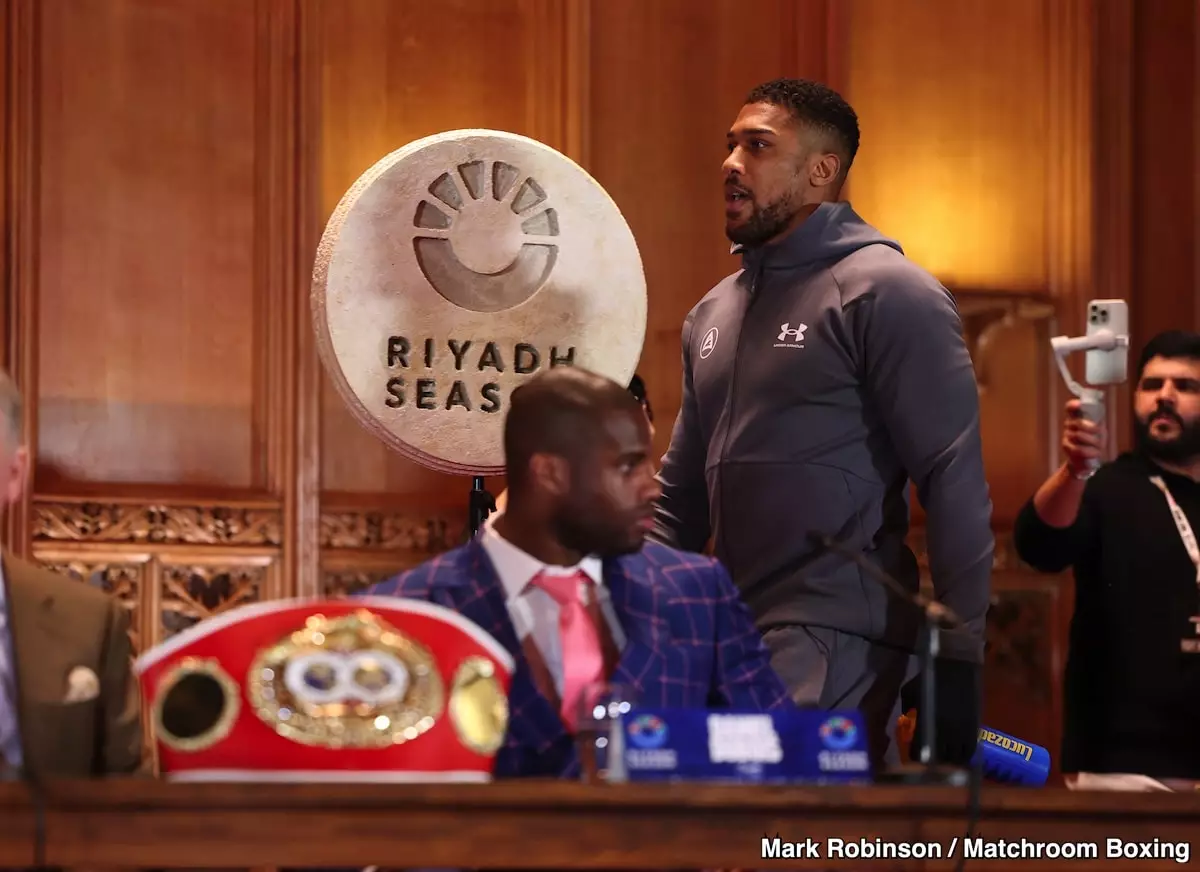Former two-time heavyweight champion Anthony Joshua finds himself at a pivotal moment in his boxing career. After suffering a harsh knockout loss to Daniel Dubois, the pathway ahead appears riddled with uncertainty. Despite these challenges, Eddie Hearn, Joshua’s promoter, maintains a sense of optimism, claiming that AJ is “in a really good position.” However, the stark reality is that Joshua’s future is not as clear-cut as his promoter suggests. The boxing world is rife with speculation and potential pitfalls that could thwart Joshua’s ambitions and aspirations.
Hearn outlined two primary options for Joshua’s next fight: a rematch with Dubois or a highly anticipated clash with Tyson Fury. While Hearn confidently asserts that AJ is eager for revenge against Dubois, the situation is not as simple as it seems. Timing becomes a crucial factor, with indications that training for a February rematch would have to begin imminently. There is considerable pressure on Joshua to capitalize on this opportunity quickly, but there are valid concerns regarding the implications of such a decision.
Striking while the iron is hot can be advantageous, but it also presents risks, especially when the possibility of a larger fight with Fury looms on the horizon. Joshua’s fate may hang in the balance as he considers which route to take. Taking a fight with Dubois may yield immediate gratification but could preclude him from a potentially more lucrative encounter with Fury later in the year.
The specter of Tyson Fury further complicates Joshua’s situation. Should Fury successfully defend his position against Oleksandr Usyk, speculation mounts regarding a contractual rematch that could tie Fury up for much longer than anticipated. Such a scenario would likely diminish Joshua’s options and stall his comeback efforts significantly. If Hearn’s predictions pan out and Fury wins, the implications for Joshua could be dire. Not only would the rematch with Fury be a daunting challenge, but the possibility of facing a champion for the heavyweight title would also evaporate, leaving Joshua seeking alternative opponents.
Moreover, should Fury face defeat and subsequently withdraw from boxing, the heavyweight landscape would shift unpredictably. Joshua would then have to reassess an already tenuous position. The heavyweight scene is characterized by shifting allegiances and sudden changes, and Joshua’s career remains vulnerable to these dynamics.
Another critical point is that Frank Warren, Dubois’s promoter, has confirmed that Dubois will fight in February, with or without Joshua. If Hearn and AJ miss the February window, a fight with Dubois may well slip through their fingers. There’s also the lingering question about Joshua’s readiness, both mentally and physically, in the aftermath of his latest loss. He must regain not just his physical prowess but his psychological edge to step back into the ring against formidable competitors.
Despite all this speculation, a match against another top contender is equally likely. Hearn’s assertions place a significant burden on Joshua to regain his boxing instincts and navigational skills to traverse a landscape that could see him engaging with a completely unexpected opponent.
Anthony Joshua’s impending choices pose substantial risks and rewards. The allure of big fights, particularly against either Dubois or Fury, is contrasted by the potential pitfalls that accompany such decisions. While Eddie Hearn speaks with confidence regarding Joshua’s position, the reality remains that uncertainty hangs over AJ like a shadow.
In this high-stakes game of heavyweight boxing, Joshua must navigate a labyrinthine sequence of potential fights while ensuring he doesn’t fall into an unfortunate scenario that impairs his long-term prospects. As fans and analysts keep a keen eye on this developing saga, Joshua’s next steps could redefine his legacy—or spell the end of an era. The stakes are indeed high, and the clock is ticking.

